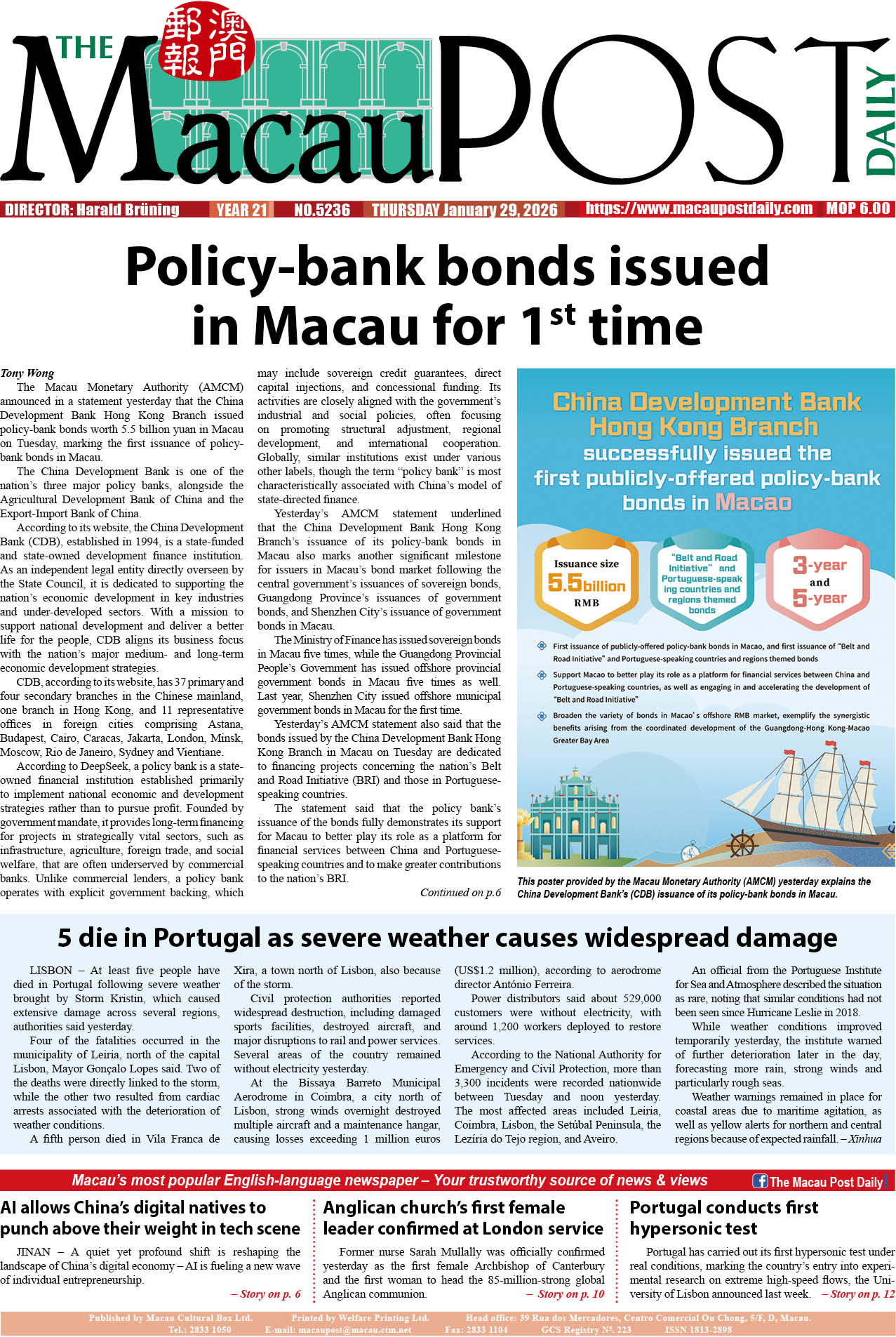Many locals prefer going to places like Zhuhai to shop and even dine. As the situation continues, how does it affect local spending? More importantly, how do local businesses feel about the situation? The Post gathered opinions through interviews with four of them, with some expressing concern about the future.
‘We have no idea how to make them come back’
Chan has been running his coffee shop for close to six years. On the street he is in, he sees many shops opening, but business in the area is “so-so”. For him, though it is somewhat better at the weekend, it is mostly just “okay” compared to the weekdays, which can be unpredictable.
“The fact is the consumption rate is lower than before. Many of the businesses cannot stay open for a long time. Maybe they’ll be open for a year, half a year and then close”, according to Chan, whose business is no exception to the changes in local consumption.
“Most of our [local] residents go outside [of Macau] and we have no idea how to make them come back because they think that the mainland has more attractions or that it is cheaper and they have more choices there. So, this is a difficulty for our business’s survival”, added the 50-year-old.
There are ways to alleviate the situation, he said, among which were the government’s introduction of initiatives such as the recent “Community Consumption Grand Prize” campaign that ran from March 24 to June 1. For Chan’s business, he said this was helpful, reporting a higher revenue the previous month. However, it is not a long-term solution as after the campaign ended, he noted: “We found that many local residents disappeared” or started coming less frequently.
Chan also cited other factors that make running a business challenging in the city, such as certain policies that might limit how businesses like his can operate. “We are facing competition with mainland China businesses. Maybe we do not have an advantage compared to them”.
Moreover, he touched on tourist spending, particularly from the mainland source market, saying that although many like going to and spending at famous local landmarks, businesses outside of those areas can’t always reap the same benefits. He hopes that there will be a way to promote more parts of the city, specifically Macau’s older and “more local” areas to encourage more tourists to visit, see and spend there, perhaps through popular platforms in the mainland such as Xiaohongshu (Little Red Book) and Douyin.
‘A situation we cannot change’
Fan, the owner of a family-run business selling video games and consoles, said he was fortunate to be not as greatly impacted by the situation. However, he pointed out that the same cannot be said for the local restaurant sector, which he said is much more affected.
Fan added regarding spending outside of Macau: “I think this is a situation we cannot change”, with costs in the neighbouring city of Zhuhai being much lower than in Macau. Consumers always opt for the cheapest options, the 38-year-old pointed out, which he said was very reasonable. “To me, this is a problem that cannot be fixed”.
Fan also remarked that consumption campaigns are something that “helped a bit” to encourage more local spending in Macau, but like Chan, he noted that this was only a short-term fix. “For us, there’s nothing we can do, actually. We can’t lower prices anymore. The cost in Macau is so high and the cost in Zhuhai is very, very low compared to us”.
Prioritising local employment
If locals continue to prefer spending elsewhere, boutique owner Ho offered a bleak outlook, saying she thinks that the future of the local economy doesn’t look good, while continuing to do business will be very difficult. “The Macau we know now is not the same as it was before when we were younger”, having undergone many changes, including in the city’s business landscape. “Back then, you could have no money, but still be happy. But now, whether you have money won’t necessarily mean that you will be happy”.
To encourage more spending, Ho, 47, said that a way forward was to create more local employment opportunities as well as prioritising local employment. With jobs, Ho said, locals would be more willing to spend. “Without jobs, how can you spend?”, with consumption elsewhere being more attractive due to cost factors. She said that she continues to worry about the future, especially as her teenage daughter inches closer to graduating and thinking that it will be difficult finding employment opportunities for her.
‘A substantial impact’
Lastly, Nate, another coffee shop owner, thinks that more incentives for local consumption would be a solution.
“With the change in consumption patterns in recent years, there has been a significant and substantial impact on the merchants’ environment”, he said, adding that the incentives could be given in the form of consumption vouchers. Nate said he believes this would be “a more substantial policy to benefit the people”.

Pedestrians walk past a shop on Rua do Campo (水坑尾街) yesterday afternoon. – Photo: Rui Pastorin






